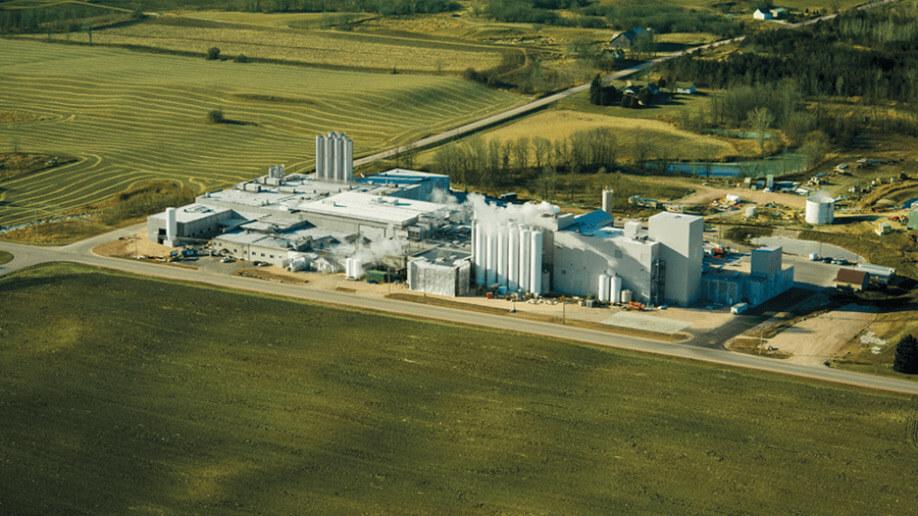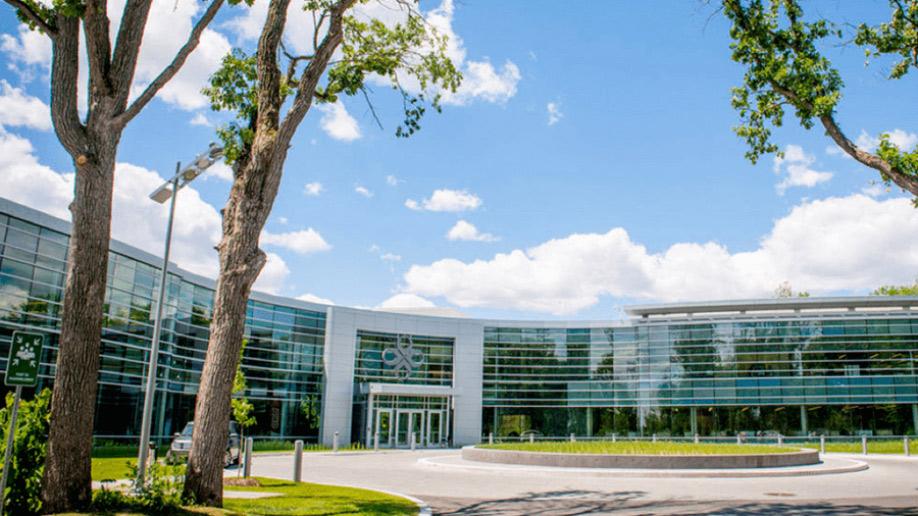Responsible operations
We apply best practices in sustainable development and carry out numerous environmental initiatives, including steps to reduce our greenhouse-gas emissions and reuse our waste materials.
Cooperating for environmental responsibility
As a member of the global food industry, Agropur is aware of our role in society and how our operations are interrelated with this global climate crisis. Our expert energy and water teams do their part to track our energy consumption and carefully manage our water use. The teams take the unique geography of each plant site into consideration to design solutions that continually improve our performance.

Energy management
It takes significant energy to produce dairy products. Our energy team is committed to finding solutions that increase efficiency and cut costs, and their dedication has won several prestigious awards. Beyond efficiency, we also care about our energy sources; each of our facilities is supplied by a different energy mix. Some are powered with renewable energy sources such as wind, solar and hydropower. Others receive energy from power plants that haven’t yet transitioned to renewable energy. As signatories of US Dairy’s Stewardship Commitment, we take pride in contributing to the industry’s goal of becoming carbon neutral or better by 2050 through two major objectives: reducing our energy intensity and increasing our use of renewable energy.
Smart water management
Water management is an Agropur priority, because we understand just how vital water is to the entire dairy industry.
Our water management approach includes ongoing sampling to test the quality of both the water we take from the environment (for consumption) and the wastewater we release into the environment.
Agropur’s water management program has the following objectives:
-
Measure and monitor annual water consumption
-
Lower water consumption
-
Reduce the organic load of our wastewater, i.e., enhance the quality of the wastewater discharged.
Education and awareness-raising on water issues have met with an enthusiastic response from teams at our plants. Today, our employees and partners often come to us with ideas on how to improve water management performance.
Lowering GHG emissions
Agropur closely monitors and calculates the GHG emissions generated by our Canadian and US operations.The Cooperative is working to develop a realistic portrait of its GHG emissions to assess their impact on climate change.
Packaging
We aim to maximize the nutritional value provided by every drop of milk by minimizing food losses throughout our supply chain, from farm to consumer, through efficient packaging. To this end, we have established a directive on responsible packaging that illustrates our vision, orientation and commitments. It guides our teams, suppliers and partners in reducing the overall environmental footprint of our packaging in effort to achieve our vision, “Better Dairy. Better World.”
A second life for our organic materials
Agropur already has internal processes to treat and reuse the vast majority of our organic waste. Much of it is used to produce powders such as whey protein and milk protein concentrates.
When we cannot repurpose residual materials in-house, we outsource liquid organic waste to be treated and reused for projects such as biogas production. Solid food waste, like cheese by-products, are sent to processors and used to make animal feed.

LEED-Silver certified head office
In 2017 the new Agropur head office in Saint-Hubert, Quebec was certified LEED-Silver. The state-of-the-art facility is the fruit of three years of planning and construction, and is harmoniously integrated into its natural setting. Concrete actions taken to achieve LEED certification:
-
95% of construction and demolition wastes were diverted from landfill
-
20% of construction materials contain recycled materials
-
Parking lots feature charging stations to encourage electric vehicle use
-
80% of the roof surface is covered with a highly reflective material to reduce the heat-island effect
-
97% of regularly occupied spaces enjoy views of the great outdoors
Biogas production
Agropur provides the City of Saint-Hyacinthe, Quebec, with up to 10,000 tonnes of food waste to produce biogas, a renewable natural gas that is used to meet the city’s energy needs and sold to third parties. The Cooperative is proud to be part of a project that delivers environmental, social and economic benefits.

